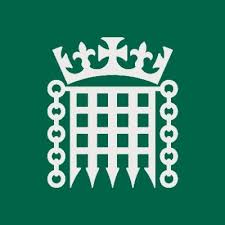The speech made by John McGovern, the then Labour MP for Glasgow Shettleston, in the House of Commons on 10 February 1932.
I beg to move,
“That leave be given to bring in a Bill to provide for the reduction and control of rents of houses and shops.”
A similar Bill to this was introduced by my former colleague, Mr. Campbell Stephen, the late Member for Camlachie, on the 2nd December, 1930, and later received a Second Reading in this House, and I am asking the House again to endorse a Bill of that description. I may say at the outset that I am rather disappointed that the Government have not seen fit to bring in such a Bill themselves, seeing that they profess to believe in sacrifices being made equally by all sections of the population. I can assure the Government that, if they bring in a Bill embodying the principles of the Bill that I am proposing, I will not ask the House to proceed further with my Bill.
In asking that there should be control of these houses and a reduction of rents, the reduction I have in mind is a reduction to what was in operation previous to the Act of 1920, which gave power to make certain increases. The powers of the Act of 1920 were given because of the fact that an increase had taken place in the cost of building materials and labour, and also in the cost of the materials and labour involved in the repair of these properties, but the reason for that has practically disappeared. I have before me a chart from the National Federation of Building Trades Employers, in which they show that the pre-War costs of house-building were almost similar to those of to-day. A very considerable drop has taken place, and I suggest that that is a reason why these reductions and control should take place.
There are probably hundreds of thousands of houses in this country which have been decontrolled, and people are compelled to pay the high prices charged by the house-owners. I think that these houses ought again to be brought under control, because of the fact that we have, in tenements and houses next door to one another, such disparities in charges as 20s. per month for a controlled house and 30s. per month for a decontrolled single-apartment house. I suggest that, as the reason for these increases has passed away, sacrifices ought now to be made by the landlords of this country. During this period wages have fallen to the ex-extent of almost £900,000,000 per year, every section has been asked to make its sacrifice, and we find the same rates prevailing in 1932 as were operating in 1920. I would remind the House that millions of people are being asked to bear burdens which have become almost intolerable and unbearable. With the reductions in unemployment benefit and in wages and salaries, and the application of the means test, it is not justifiable to expect that these people should pay the same rates as were paid in 1920.
I also ask that small shops in working-class areas should be brought under control, and that some reduction should take place in regard to them, because many of these shopkeepers, with the reduced purchasing power of the people in their areas, are also quite unable to bear this burden, and we find them day after day being summoned to the Courts because they are unable to pay their way. On the other hand, hundreds of thousands of people in this country are being summoned to the Courts, and many are being evicted, because they cannot pay the rents that are being demanded. I ask the House again to endorse this proposal of control and reduction, in the interests of equal sacrifice by all classes.
May I remind the House, in regard to cuts, that the much despised German Government brought in in the Reichstag two cuts in the rents of working-class houses? When they asked for reductions in wages and in unemployment benefit, they jointly applied a reduction in working-class rents. Surely we are not entitled to expect at this time of day that an unemployed man with a, wife and one child who is in receipt of 21s. 3d. should be compelled to pay to a landlord in some cases eleven shillings to twelve shillings out of that miserable pittance. The House would be doing well and would be passing one of the most important Measures that have been undertaken if it gave a First Reading to this Bill and gave it a quick passage through its further stages to ease the burden of millions of human beings who, I am sure, would endorse the action of Members as being one of a very humane character.
